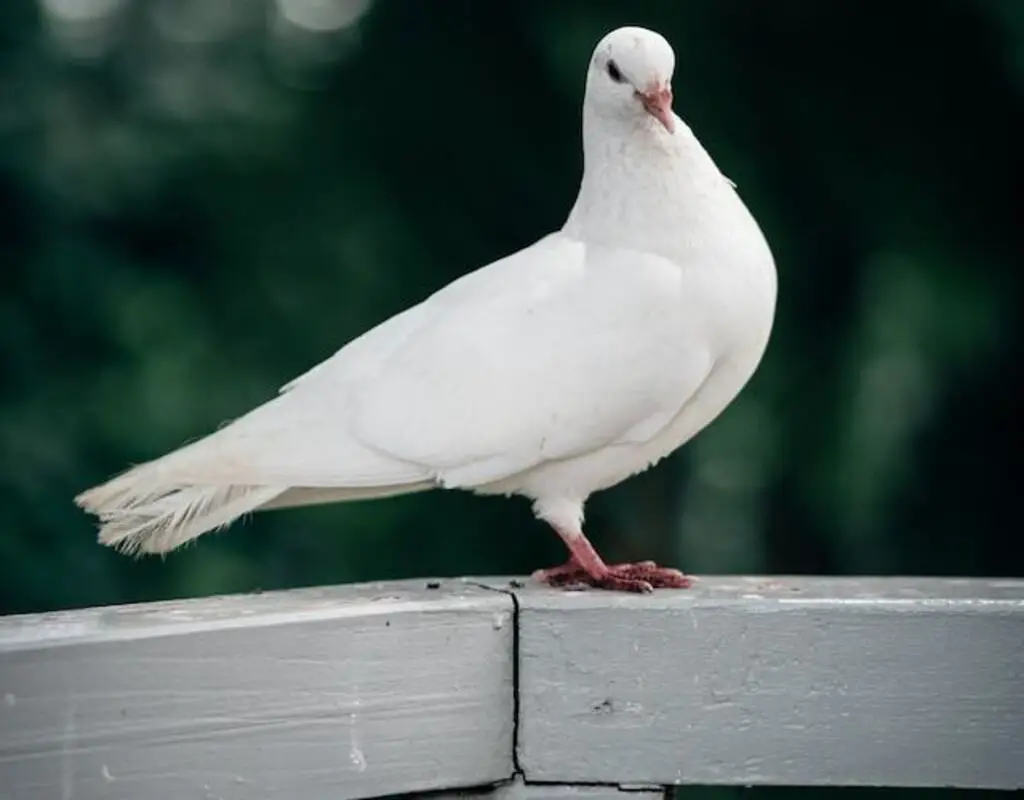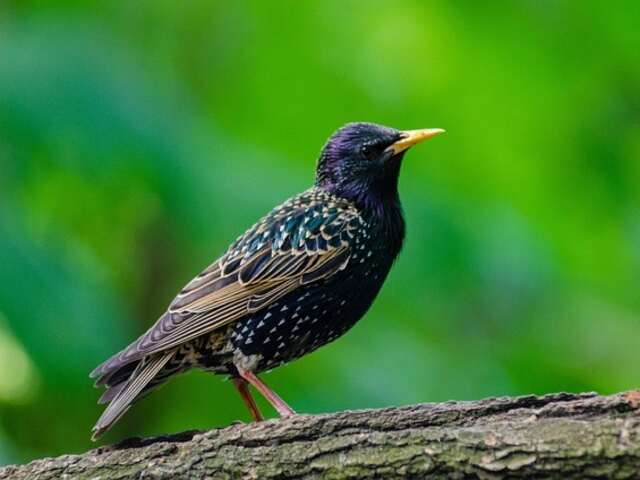Birds flying into the house is a phenomenon that has intrigued people across cultures and time periods. Many ponder the significance of this occurrence, questioning what it truly means when birds enter our homes.
While some interpret it as a positive sign, others perceive it as a warning of impending danger.
In this article, we will embark on an exploration of the possible meanings behind birds flying into the house, delving into superstitions, cultural beliefs, and scientific explanations.
Our aim is to provide an in-depth analysis of this intriguing phenomenon, examining the symbolism of different bird species and offering guidance on appropriate actions to take.
By adopting a multidisciplinary approach that draws from folklore, mythology, and ornithology, we can uncover the rich tapestry of interpretations surrounding the question: What Does It Mean When Birds Fly In Your House?
Table of Contents
- 1 Overview
- 2 Superstitions and Beliefs
- 3 Symbolism of Bird Species
- 4 Mythical and Folklore Significance
- 5 Scientific Explanations
- 6 Reasons for Birds in House
- 7 Potential Dangers
- 8 Actions to Take
- 9 Safety Precautions
- 10 Encouraging Birds to Leave
- 11 Common Bird Species That Enter Homes
- 12 Conclusion and Summary
- 13 Frequently Asked Questions
- 13.1 Can bird droppings inside the house cause any health problems?
- 13.2 How common is it for birds to fly into houses?
- 13.3 Is it necessary to call a professional to remove a bird from the house?
- 13.4 Can keeping a bird as a pet attract wild birds to enter the house?
- 13.5 Are there any cultural beliefs that associate bird flying in the house with good luck or fortune?
- 14 Author
Overview
This section provides an overview of the topic of bird flying in the house, including pre-existing knowledge, cultural beliefs, scientific explanations, possible dangers, and safety precautions, with the aim of exploring the significance of this phenomenon.
Birds flying inside a house have been associated with various superstitions and beliefs across cultures, such as signs of impending death, good or bad luck, or messages from the spirit world.
Some believe that specific bird species, such as owls or sparrows, have distinct meanings when flying indoors.
Scientifically, birds may enter houses due to disorientation, weather conditions, or attraction to light sources.
However, there are also potential dangers that come with birds being indoors, such as damage to property, spread of disease, or injury to the birds themselves.
To safely handle such situations, it is recommended to take precautions such as closing windows and doors, covering mirrors and shiny objects, and providing a clear path for the birds to exit.
Understanding the spiritual and scientific aspects of birds flying in the house can provide insight into their meaning and significance.
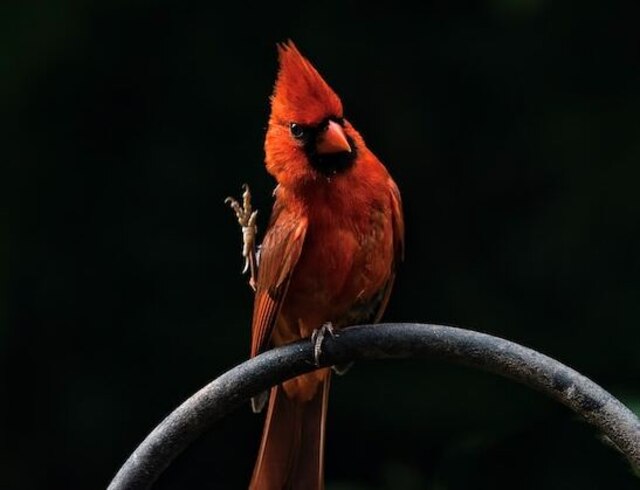
Superstitions and Beliefs
Beliefs and superstitions surrounding the phenomenon of birds entering the living space of humans are deeply ingrained in various cultures and traditions, with some attributing the occurrence to either good or bad omens, luck, or messages from the spiritual realm.
In some cultures, it is believed that if a bird enters the house, it signifies the arrival of a guest, while in others, it is seen as a sign of death or misfortune.
Certain cultural beliefs about birds in the house indicate that the type of bird that enters the house can carry different meanings, such as the owl being a symbol of wisdom or the crow being a sign of impending doom.
Some also believe that birds flying in the house bring messages from loved ones who have passed on.
Despite the scientific explanation for birds entering homes, some people still hold onto these ancient beliefs and see them as an omen of sorts.
This leads to the symbolism of bird species, which will be discussed in the following section.
Table: Superstitions and Beliefs
| Superstitions and Beliefs | Meaning |
|---|---|
| Birds flying into the house is considered a sign of good luck in some cultures | Good luck |
| Some cultures believe that birds flying into the house bring a message from the spirit world | Spiritual message |
| In certain superstitions, birds flying into the house are seen as a warning of impending danger | Warning sign |
Symbolism of Bird Species
The symbolic significance of bird species that enter the house varies across cultures and traditions, with different species carrying unique meanings that range from wisdom and good fortune to death and misfortune.
For instance, in Chinese culture, a bird flying inside the house is seen as a sign of good luck, especially if it’s a swallow or magpie.
In Celtic folklore, a wren that flies into the house is believed to bring bad luck and misfortune.
Meanwhile, Native American cultures view a bird flying in the house as a message from the spirit world, with different species carrying different messages.
For example, a blue jay flying in the house may indicate a message of truth and clarity, while a crow may signify a message of transformation and change.
Overall, the omens of birds flying inside the house are dependent on the cultural and mythological beliefs and the symbolism of bird species.
This highlights the importance of understanding the different cultural perspectives and interpretations of bird behavior in different societies.
The subsequent section will explore the mythical and folklore significance of bird flying in the house.
Table: Symbolism of Bird Species
| Bird Species | Symbolic Meaning |
|---|---|
| Sparrow | Good luck and protection |
| Owl | Wisdom and spiritual guidance |
| Robin | Renewal and new beginnings |
| Raven | Transformation and mystery |
| Dove | Peace and harmony |
Mythical and Folklore Significance
The mythical and folklore significance of bird flight patterns inside a dwelling place is a fascinating subject that provides insight into the cultural beliefs and practices that shape the interpretations of bird behavior in different societies.
Throughout history, birds flying inside a house have been thought to bring both good and bad luck, depending on the species of bird and the direction in which it flew.
In some cultures, it is believed that birds flying in the house are a sign of impending death or bad news, while in others, it is seen as a sign of good fortune and prosperity.
Some narratives suggest that certain birds flying inside the house may be a symbol of a message or warning from a higher power, while others view it as a simple coincidence or chance event.
The mystical interpretations of birds indoors have been passed down through generations, and many people still hold onto these beliefs today.
However, in contrast to these interpretations, scientific explanations suggest that birds may simply be seeking shelter or have accidentally flown into the house.
Regardless of the reason, it is important to approach the situation with caution and safety in mind.
Table: Mythical and Folklore Significance
| Mythical and Folklore Significance | Meaning |
|---|---|
| In Greek mythology, birds were believed to be messengers of the gods and represented divine intervention | Divine messengers |
| In Native American folklore, certain birds were associated with specific spiritual qualities and acted as omens | Spiritual omens |
| Folklore in some cultures suggests that birds in the house could be the souls of deceased loved ones visiting | Visitation of spirits |
Scientific Explanations
Various scientific explanations have been proposed to account for the occurrence of birds flying inside a house, which include birds being disoriented by artificial lighting, reflections, or other environmental factors that cause them to lose their bearings and fly off course.
Birds are known to navigate using the sun, stars, and the earth’s magnetic field, but when exposed to artificial lighting or reflective surfaces, their navigation system can be disrupted, leading them to fly in the wrong direction.
Additionally, birds may enter a house in search of food or shelter, especially during extreme weather conditions.
Some bird species, such as swallows and swifts, are known to build their nests in the eaves of houses and may accidentally fly inside while tending to their nests.
It’s also important to note that not all bird species have the same susceptibility to flying indoors, with some being more prone to it than others.
While there may be scientific explanations for why birds fly inside houses, it’s important to also consider the symbolic and cultural significance that birds inside the house may hold for different individuals and communities.
With this in mind, understanding the reasons for birds entering a house can help alleviate any potential dangers and provide a safer environment for both humans and birds.
Table: Scientific Explanations
| Scientific Explanations | Meaning |
|---|---|
| Birds may fly into houses due to disorientation caused by reflective surfaces such as windows | Disorientation |
| Migration patterns can lead birds to inadvertently enter houses in search of food and shelter | Migration |
| Territorial behavior can cause birds to defend their perceived territory, including homes | Territorial behavior |
Reasons for Birds in House
The presence of birds in our homes can be attributed to a variety of reasons, beyond the scientific explanations. Understanding these factors is crucial to comprehending the significance of birds flying into houses.
While cultures and superstitions associate spiritual meanings, it is important to recognize practical motivations as well. Birds may enter seeking shelter, warmth, or drawn by indoor plants and food sources.
However, it’s essential to be aware of potential risks, such as bird diseases or property damage. To ensure safety, precautionary measures should be taken, encouraging birds to fly out of the house.
Table: Reasons for Birds in House
| Reasons for Birds in House | Meaning |
|---|---|
| Seeking shelter and warmth | Shelter and warmth |
| Attracted to indoor plants | Indoor plants |
| Looking for food sources | Food sources |
Potential Dangers
Potential hazards associated with birds indoors are akin to a ticking time bomb waiting to detonate, as they can transmit diseases, cause damage to property, and pose a threat to the overall safety of occupants.
The superstitions about birds flying into houses as an omen of good or bad luck, should not be taken lightly.
The potential dangers of bird flying in the house range from the spread of diseases such as avian flu, salmonella, and histoplasmosis, to damage to property, such as pecking at wires and furniture, and causing fire hazards.
Additionally, birds can cause a disturbance by making noise and leaving droppings in unwanted areas.
Furthermore, birds can pose a threat to the safety of occupants by causing accidents or attacks, especially if they are agitated or frightened.
Taking prompt action to remove birds from the house can prevent these dangers from escalating.
Table: Potential Dangers
| Potential Dangers | Meaning |
|---|---|
| Transmission of bird diseases | Bird diseases |
| Property damage | Damage to property |
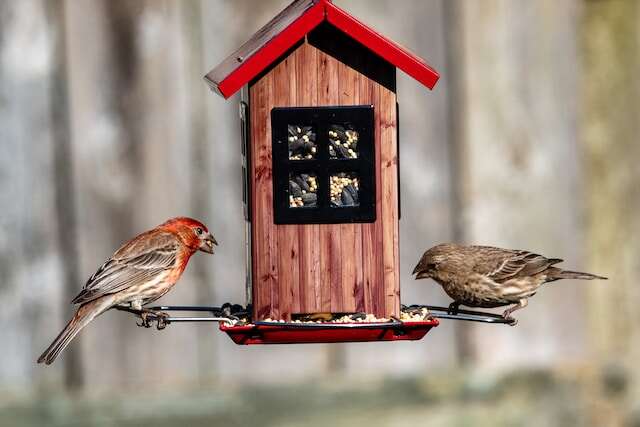
Actions to Take
One effective approach to mitigate the potential hazards of bird flying in the house is to take prompt and appropriate actions to remove them from the indoor environment.
There are various superstitions about birds flying indoors, and many people believe that it is a sign of bad luck or death.
However, it is essential to understand that birds can enter the house for various reasons, such as seeking shelter or food.
Regardless of the reason, it is crucial to take swift action to prevent any harm to the bird or humans.
One way to encourage birds to fly out of the house is to turn off all lights and close curtains to reduce indoor brightness.
Additionally, opening windows and doors can create an escape route for the bird. It is also advisable to avoid catching or touching the bird as it can cause stress or harm to them.
By taking these actions, individuals can safely remove birds from their indoor environment and avoid any potential dangers.
In the subsequent section about safety precautions, we will discuss additional measures to prevent harm when dealing with birds in the house.
Table: Actions to Take
| Actions to Take | Meaning |
|---|---|
| Open doors and windows to provide an exit for the birds | Providing an exit |
| Avoid chasing or startling the birds, as it may cause further disorientation | Minimizing disorientation |
| Remove potential food sources to discourage birds from staying | Removing food sources |
Safety Precautions
To ensure the safety of both humans and birds, it is imperative to follow specific safety precautions when dealing with birds that have entered an indoor environment.
While there may be various reasons as to why birds enter our homes, it is crucial to handle the situation with care and caution.
It is essential to keep children and pets away from the area, as they may harm the bird unintentionally.
Additionally, it is advisable to wear gloves while handling the bird to avoid any potential injuries caused by the bird’s beak or talons.
Furthermore, it is vital to ensure that the bird has access to water and food while in captivity.
It is also crucial to keep in mind that some bird species may carry diseases, and therefore, it is recommended to avoid direct contact with them.
By adhering to these safety precautions, we can ensure the well-being of both the birds and the people in the house.
The next step is to encourage the birds to leave the house, which involves specific methods that can help them find their way back into the wild.
Table: Safety Precautions
| Safety Precautions | Meaning |
|---|---|
| Use caution when handling birds to avoid potential bites or injuries | Handling precautions |
| Clean and disinfect areas where birds were present to minimize the risk of diseases | Cleaning and disinfection |
Encouraging Birds to Leave
After taking the necessary safety precautions when dealing with birds in the house, the next step is to encourage them to fly out.
There are various methods to do this, such as opening windows and doors, turning off the lights in the room, and placing food or water outside.
It is important to remember that birds may be disoriented and scared, so patience is key when trying to coax them out.
While there are many superstitions about birds flying indoors, it is important to approach the situation calmly and rationally.
By understanding the reasons why birds may enter a home and taking the necessary steps to encourage them to leave, we can minimize any potential harm to both the birds and humans.
Ultimately, the significance of birds flying in the house varies across cultures and beliefs, but it is important to act responsibly and take the necessary precautions to ensure the safety of all involved.
In conclusion, understanding the symbolism, superstitions, and scientific explanations surrounding birds flying in the house can provide insight into this phenomenon, but ultimately, it is up to us to act responsibly and ensure the safety and well-being of all involved.
Table: Encouraging Birds to Leave
| Encouraging Birds to Leave | Meaning |
|---|---|
| Create an unappealing environment by removing nesting materials and closing off access points | Discouraging nesting and access |
| Use deterrents such as noise or visual distractions to encourage birds to leave | Encouraging departure through deterrents |
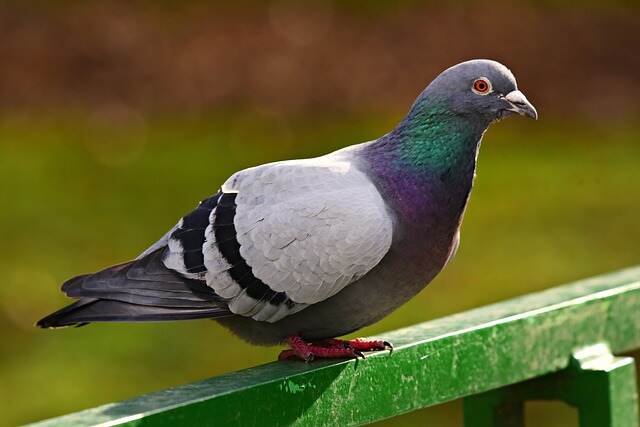
Common Bird Species That Enter Homes
| Common Bird Species | Description | Symbolic Meaning |
|---|---|---|
| House Sparrow | Small, brown-colored bird often found near humans | Adaptability, resourcefulness |
| European Starling | Medium-sized bird with glossy black plumage | Synchronicity, communication |
| Rock Pigeon | Grey bird with iridescent feathers on neck | Peace, love, fertility |
| American Robin | Medium-sized bird with orange breast | Renewal, new beginnings |
| Barn Swallow | Small bird with long, forked tail | Good luck, loyalty |
| Chimney Swift | Small, dark bird with long, curved wings | Transformation, protection |
| Northern Cardinal | Vibrant red bird with a distinctive crest | Vitality, passion, spiritual messenger |
| Eastern Bluebird | Small, blue bird with a reddish breast | Joy, happiness, contentment |
| House Finch | Small bird with a mix of red and brown feathers | Harmony, social connections |
| White-throated Sparrow | Sparrow with white throat and yellow lores | Inner voice, self-expression |
This table provides a brief description of each bird species and includes their symbolic meanings, which can vary across different cultures and belief systems.
Conclusion and Summary
The significance of birds flying in the house varies across cultures and beliefs, but by understanding the various methods to encourage them to leave and taking necessary safety precautions, we can minimize potential harm to both the birds and humans.
Encountering birds inside our homes can be a source of wonder, fear, or superstition. While some people may assign spiritual messages to their presence, others may consider it bad luck or a sign of impending doom.
Whatever the interpretation, it is important to remember that birds are wild animals and can pose a danger to themselves and humans if not handled properly.
To encourage them to leave, we can try opening windows and doors, turning off lights, playing bird sounds, or gently guiding them towards an exit with a broom or towel.
However, we must also be cautious not to harm them in the process, as well as protect ourselves from potential diseases or injuries.
In conclusion, while the symbolism and superstitions about birds in the house may vary, it is crucial to approach the situation with knowledge and respect for their natural behavior and habitat.
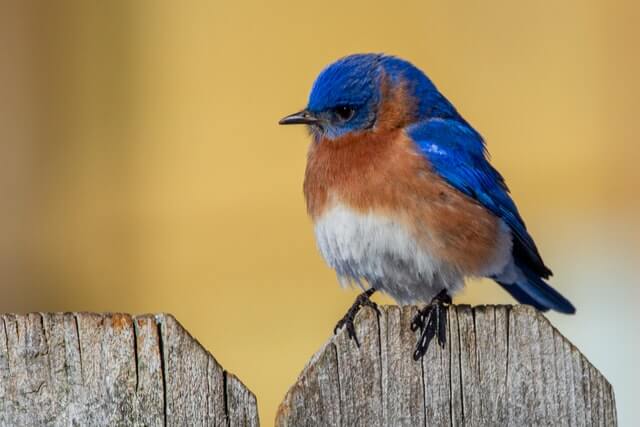
Frequently Asked Questions
Can bird droppings inside the house cause any health problems?
Bird droppings inside the house can pose serious health risks to humans. Exposure to the bacteria, fungi, and viruses present in bird droppings can cause respiratory problems, skin irritation, and even diseases like histoplasmosis, which can be fatal.
For instance, a hypothetical case study involves a family who had a bird nest in their attic, which led to a significant amount of droppings accumulating in the space.
As a result, the family members developed breathing difficulties and skin rashes due to the bird droppings’ constant exposure.
It is vital to clean bird droppings immediately and take appropriate measures to prevent birds from entering the house to avoid these health risks.
How common is it for birds to fly into houses?
Birds flying into houses is a relatively common occurrence, with many factors contributing to it. These include migration patterns, changes in weather and habitat, and the presence of artificial light.
While it can be startling or even dangerous for both the bird and the occupants of the house, it is not generally considered to have any specific symbolic or cultural significance.
Instead, measures such as closing windows and doors and providing a clear path for the bird to exit can help safely guide the bird out of the house.
It is important to take caution when dealing with birds in the house, as they may become stressed or injured, and to seek professional help if needed.
Is it necessary to call a professional to remove a bird from the house?
Birds entering a house can be a common occurrence, but it can still cause panic and confusion for some individuals.
While it may be tempting to call a professional to remove the bird, it is often unnecessary and can be easily handled with proper safety precautions.
It is important to remember that birds are wild animals and can become stressed or injured when trapped indoors. To avoid this, it is recommended to open windows and doors to encourage the bird to fly out on its own.
If this does not work, gently guiding the bird with a broom or towel can help steer it towards an open exit.
It is crucial to handle the situation calmly and with care to ensure the safety of both the bird and the individuals involved.
Can keeping a bird as a pet attract wild birds to enter the house?
Keeping a bird as a pet can potentially attract wild birds to enter the house, as the bird’s presence may signal a safe and comfortable environment for other birds.
This can be both a positive and negative aspect of pet bird ownership, as it may provide an opportunity for bird watching and appreciation, but also increase the likelihood of birds flying into the house.
It is important for pet bird owners to take precautions to prevent wild birds from entering the house, such as keeping windows and doors closed or screened, and monitoring the pet bird’s behavior to ensure it does not encourage wild birds to enter.
Are there any cultural beliefs that associate bird flying in the house with good luck or fortune?
Bird flying in the house has been associated with various cultural beliefs and superstitions across different societies.
In some cultures, bird flying in the house is considered a sign of good luck or fortune, while in others, it is viewed as an ominous sign of impending doom.
The symbolism and meanings of different bird species flying in the house vary depending on the culture and context.
Moreover, scientific explanations suggest that birds may enter houses for various reasons, including seeking shelter, food, or water.
However, having birds in the house can pose potential dangers, such as bird-borne diseases or property damage.
Therefore, it is important to take appropriate safety precautions when dealing with birds in the house and use effective methods to encourage them to fly out.

